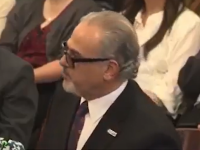Newswire reports suggest that Goldman Sachs’ issue of a five-year $500 million Sukuk was some 3x oversubscribed with orders of around $1.5 billion. The US investment bank appears to have learned from the fiasco of its first attempt to market a Sukuk in 2011.
This time around Goldman Sachs offered a Sukuk structured predominantly as Wakala and made sure it had on board key players in the GCC, including Abu Dhabi Islamic Bank (ADIB), Emirates NBD, National Bank of Abu Dhabi, QInvest and NCB Capital as arrangers, as well as itself. The Sukuk will be listed in Luxembourg. It is only the second Sukuk to be issued by a conventional financial institution; HSBC issued a $500 million Sukuk in 2011.
Reuters reported that Goldman priced its issue at a spread of 90 basis points over midswaps. The Sukuk carry a profit rate of 2.844 per cent, a small premium to the firm’s 2019 conventional bonds.
Standard & Poor's Rating Services assigned its 'A-' rating to the special vehicle JANY Sukuk Company Limited proposed Sukuk (trust certificates)on 4 September. JANY Sukuk Company Limited, a trustee incorporated in the Cayman Islands, will enter into a Murabaha agreement for 49 per cent of the issued amount and a Wakala agreement for 51 per cent of the issued amount with J. Aron & Company, a subsidiary of The Goldman Sachs Group Inc.
S&P said the proposed trust certificates qualify as Sukuk with full credit enhancement mechanisms provided by Goldman Sachs through its guarantee of the obligations of J. Aron & Company under the Murabaha agreement. The guarantee is full, irrevocable, and unconditional. It will rank pari passu with all other GSG unsecured and unsubordinated obligations. The rating is based on draft documentation dated 19 June 2014.
It should be noted that S&P neither structures transactions nor provides opinions with regard to compliance of the proposed transaction with Shari’ah. However, the presence of ADIB is particularly significant in the wake of its part in the story of Goldman’s first aborted attempt at Sukuk issuance. Originally announced in 2011, the planned Sukuk was shown to be flawed in a report in Islamic Business & Finance #69 by Shari'ah Advisor and Auditor Mohammed Khnifer.
To say that Khnifer’s comment sparked a controversy is understatement. However, matters were made worse for Goldman when Saudi scholars, who appeared on the offering circular of Goldman Sachs’ proposed Sukuk in 2011 later dismissed reports that they had examined the prospectus. A claim that his name was mentioned as one of the “expected” scholars for (final) endorsement, was dismissed by Sheikh Mohamed Ali Elgari in an interview with Aleqtisadiah in January 2012, “The justification of the issuer that I was one of the “expected” scholars is illogical and a “fake borrowing” of my name”, Sheikh Mohamed Ali Elgari told Aleqtisadiah. “It is unprecedented to see names of scholars in an offering circular and claim they are “expected” (endorsers). This is nonsense.”








